Celebrating 20 Years of Amazing Alumni



Celebrating 20 Years of Amazing Alumni


Since the magazine’s inception, Viewpoint has highlighted the diversity of the University of Washington by featuring stories of our diverse student body, staff, faculty and alumni. For 20 years, Viewpoint has demonstrated that having a community comprised of those from a broad range of backgrounds, lived experiences, values and viewpoints make us stronger, the learning environment richer and the University more excellent, not despite of our broad diversity, but because of it.

Publishing stories that were ahead of its time, Viewpoint has been cutting edge: features about LGBTQ+ equality before same-sex marriage was legalized, powerful profiles of alumni who fought to protect women’s rights, interviews with local and national civil rights leaders, cover stories that focused on Native American sovereignty, and articles focused on disability access at the UW. These narratives, and many more like them, sparked meaningful conversations across the UW community. Viewpoint continues to be the catalyst for these needed conversations today.
Deep gratitude to the UW Alumni Association for the foresight to create and invest in a publication that tells the rich stories and histories of those who are often “othered” or who come from communities whose contributions are often overlooked or undervalued. Special thanks to the staff of Viewpoint magazine, past and present, for continually sharing content that advances equity, demonstrates that diversity and excellence go hand and hand, and promotes inclusion and belonging. Your work and this magazine are additional evidence as to why this university is so special.

Rickey Hall University Diversity Officer Vice President for the Office of Minority Affairs & Diversity
FOUNDED 2004 FALL 2024
Published by the UW Alumni Association in partnership with the UW Office of Minority Affairs & Diversity
4333 Brooklyn Ave. NE, Box 359559 Seattle, WA 98195-9559
Phone: 206-543-0540
Fax: 206-685-0611
Email: vwpoint@ uw.edu
Viewpoint on the Web: UWalum.com/viewpoint
Paul Rucker, ’95, ’02 Publisher
Hannelore Sudermann, ’96 Editor
Dustin Mattaio Mara, ’22
Contributing Art Director
Lauren Kirschman, Caitlin Klask, Shin Yu Pai, ’09 Writers
April Hong, Emile Pitre Contributing Photographers
VIEWPOINT ADVISER S
Rickey Hall
Vice President for Minority Affairs & Diversity University Diversity Officer
Annie Pellicciotti Director of Marketing and Communication The Graduate School
Eric Moss
Director of Communications
Office of Minority Affairs & Diversity
Ada Limón visits Mount Rainier National Park in June, making the national monument the second stop in her ‘You Are Here: Poetry in Parks’ project with the National Park Service, Library of Congress and Poetry Society of America.
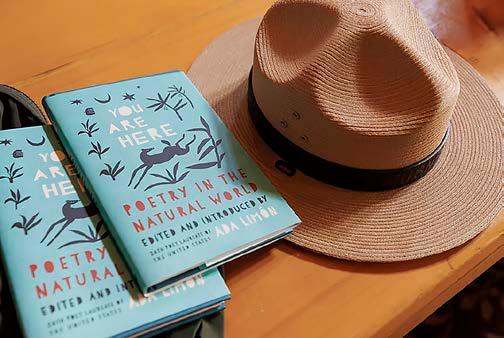

Each spring, amazing things pop up in the meadows of Mount Rainier National Park. This June, it was poet Ada Limón, ’98, who visited the mountain as part of her “You Are Here: Poetry in Parks” project. The U.S. Poet Laureate designed the project to serve both poetry and the natural world.
“At a time when it feels easy to surrender to the heartbreak of humanity, I want to make room for hope,” she says in the National Parks video introducing the project. “I want this project to remind us of our love for the earth.”
Raised in Sonoma, California, Limon attended the University of Washington with support from the Educational Opportunity Program. She nurtured her creativity in the Drama Department as she pursued her bachelor’s degree surrounded by, in her words, “free spirits and risk takers.” After graduation, she left for the East Coast and earned her Master of Fine Arts at New York University before making her home in Lexington, Kentucky.
In 2022, Limón was named the 24th U.S. Poet Laureate. The following year, she was awarded a MacArthur fellowship and then appointed to an unprecedented second, two-year term as the nation’s poet laureate, a role she will hold until April.
Throughout this summer and fall, Limón traveled to seven national parks, from Cape Cod to the Redwood National and State Parks near the California coast. At Mount Rainier’s Jackson Visitor Center, she unveiled a picnic table with an overlay featuring A.R. Ammons’ poem “Uppermost.” To serve those who might not be able to visit a park, she also curated “You Are Here,” a book of 50 original nature poems reflecting on our relationship to the natural world.
—Hannelore Sudermann
Find the link to a “PBS News Hour” story about Ada Limón’s “You Are Here: Poetry in Parks” project through our website: uwmag.online/limon.
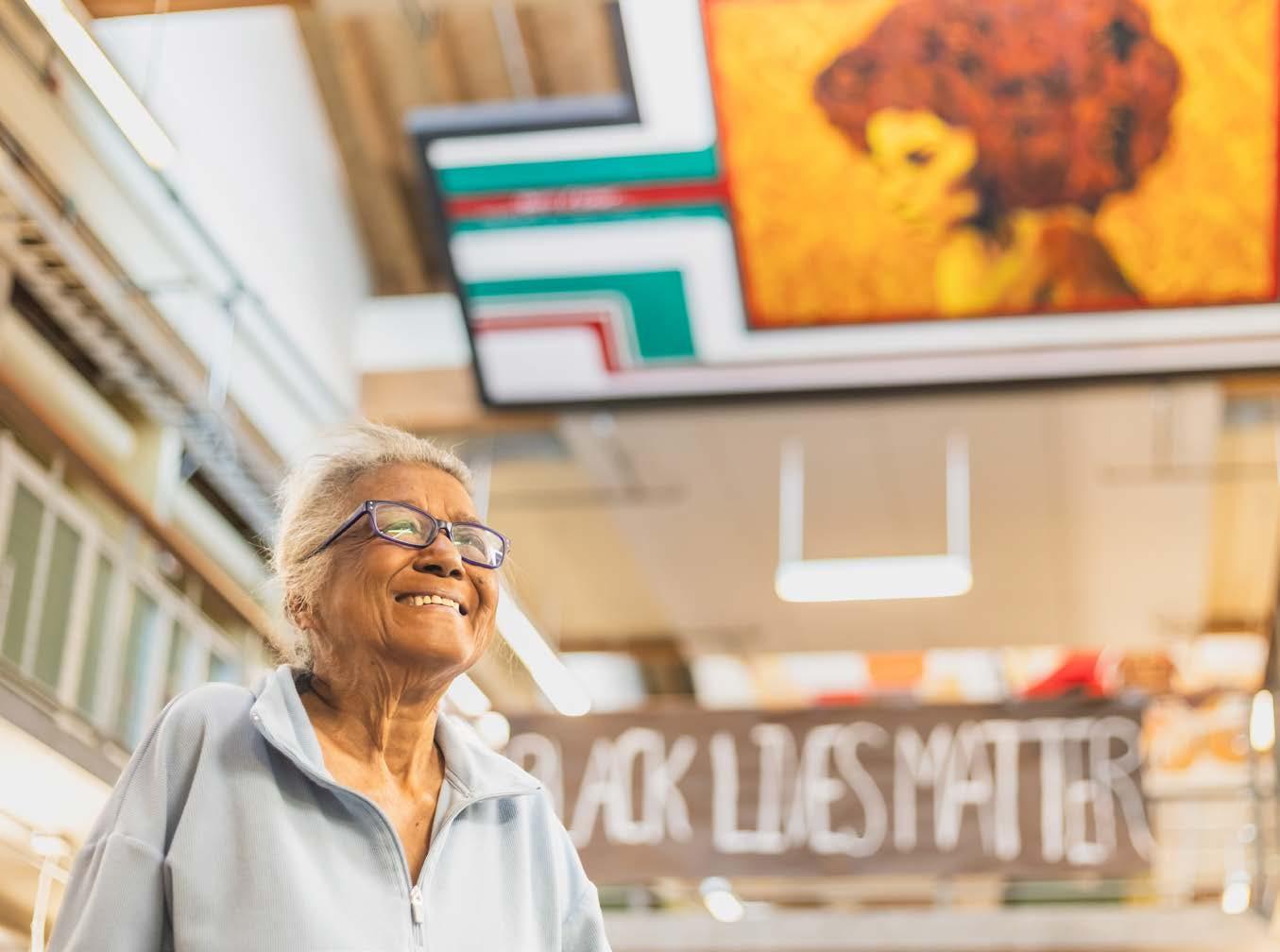
Gertrude Peoples, a beloved student adviser and advocate, reflects on her time at the UW
By Hannelore Sudermann
Photos by April Hong
Late this summer, Gertrude Peoples visited the Kelly Ethnic Cultural Center and sat down to reflect on her 41 years helping students and student athletes navigate through college. Now in her 90s and dressed in a stylish track suit, Peoples looked around the student-focused center and remarked how much had changed from the time she was recruited to work in the Office of Minority Affairs in 1970, right at the start of the UW’s Educational Opportunity Program.
“Sam Kelly saw something there that I surely didn’t see in myself,” she says. Samuel Kelly, who was hired as the UW’s first vice president for minority affairs, knew Peoples through her family: Her younger siblings, Dan and Verlaine Keith, were founding members of the UW’s Black Student Union. He asked Peoples

to join his office and support newly recruited students of color in the Educational Opportunity Program as they figured out how to navigate college.
“That was the genius of the man,” Peoples says. “He did know it would be difficult and a lot of students weren’t prepared by their high schools,” so he created a sophisticated program of welcome and support. Peoples took on a group of African American students and worked closely with them, deciphering the course catalog and registering for classes. She advocated for them with their instructors.
Peoples’ students were so successful that other parts of campus took notice, and one of the coaches started sending athletes to her for help. Within a few years, she was hired away from the Office of Minority Affairs by the Athletics Department, which had been grappling with a reputation for treating Black athletes unfairly.
As the coordinator (and later director) of Athlete Services, Peoples not only became a valuable resource for men and women on many different sports teams, she was a secret weapon for the recruiters—traveling to high schoolers’ homes and talking to parents, “letting them know their kid would not be lost in the abyss,” she says.
The students all called her “Miss Peoples” and relied on her for everything from housing advice and study tips to help choosing a major.
“Miss Peoples was always at her desk when I saw her,” says Lincoln Kennedy, ’94, the offensive tackle who, after an illustrious Husky career went on to play 11 years in the NFL. “She was very inviting and warm, but you know she meant business when she
ture of her son, “and he’s over 40 now!” Peoples says with a laugh.
The athletics program quickly recognized what an asset she was, and word of her work spread through major universities across the U.S. A multi-page feature story in Ebony magazine in 1975 celebrated Peoples as one of the only woman recruiters in college sports. As the article explained, families felt assured by Peoples’ presence on campus. The athletes themselves said they felt safe with her—that they had a person to share their concerns with, including the pressures and mental-health struggles that often come with being a student-athlete.
“I helped them with course selections and discipline. And we had a study table,” she says. “I made trips around campus to talk to certain professors and see if they would be kind to the students if they had issues with attendance.” She went to practices and frequently traveled with the football and basketball teams.
The list of Husky footballers she worked with includes Lincoln Kennedy, Stafford Mays and Bruce Harrell—Seattle’s current mayor. “I knew him when he was born,” Peoples says. And Spider Gaines. “He was from Oakland, and so full of himself,” Peoples says. “And he got into trouble his senior year.” Gaines, one of the greatest wide receivers in Husky football history, struggled with substance abuse, injury and a rocky few decades before returning to the UW to finish his sociology degree in 2006. “He called me one morning and said, ‘Miss Peoples, can I come and talk to you,’ ” she says, explaining that Gaines returned to school decades after leaving, finished his degree “and changed his life. He was the farthest out there and he came back in.”
Peoples’ student-athletes will surely remember the sound of her heels clacking on the bricks and tiles as she tracked them
‘She was very inviting and warm, but you know she meant business when she talked to you.’

talked to you.” While so many people focused on his success as an athlete, Peoples was dedicated to ensuring that he and the other athletes thrived in school. “She was a mother to us students away from home,” he says.
For one basketball player, Peoples’ support extended into the delivery room. The former Husky athlete recently shared a pic-
—Lincoln Kennedy, former NFL player, unanimous All-American and Rose Bowl Hall of Famer
down across campus. “Some professor would call and say someone just missed an exam, and I would try to locate them,” Peoples says. “A lot of our kids would hang out in the HUB. I knew exactly where they were.”
She also welcomed them to her home over breaks and holidays, so much so that her grandson started calling her “Miss Peoples.” She loved the students, and they returned her devotion. “They needed a mom on campus,” says Sharon Maeda, a student adviser in the 1970s and director of the Ethnic Cultural Center from 1973 to 1975. “I can visualize a meeting going on and Gertrude walking into the back of a room and all the athletes turning around.” Peoples relished seeing her students graduate, and she misses the excitement of working in college sports. To her delight, many stay in touch through messages and letters. Nowadays she plays bridge and keeps up with her family but doesn’t often venture from home. She was glad to come back to campus for a visit.
“The UW is now getting so many different kinds of students and so much effort is focused on inclusion,” she says. “I am overwhelmed by what it is today.”
In 2018, at a picnic table overlooking the University of Washington Farm, the new farm manager, Perry Acworth, sat with Iisaaksiichaa Ross Braine (Apsaalooke Nation) as he laid out his idea for the Native Garden.
“He said, ‘There are First Nations @ UW students who are food insecure, and I want to solve this challenge,’” Acworth recalls. First Nations @ UW is an undergraduate intertribal registered student organization.
Creating the garden was outside Braine’s job description— director of – Intellectual House, a gathering space for Indigenous students, staff and faculty—but he felt a pull of responsibility. “My culture mandates that I teach the next generation,” he says. “It’s an unbroken chain back to our traditions pre-contact.”
The idea for the garden was years in the making by the time Braine approached Acworth, but he needed her support to bring it to life. Acworth, who was once food insecure herself, didn’t need much convincing.
The two worked together to find a location, eventually settling on the UW Farm at the Center for Urban Horticulture. Upon ar-
By Lauren Kirschman
Photos by April Hong
riving at the UW, Acworth had prioritized learning the history and culture of the Pacific Northwest—specifically the story of the land where she would be working.
The site of the farm is culturally significant to Coast Salish peoples. Once home to longhouses and a fishing weir, it was industrialized by settlers in the late 1800s and later became a landfill for residential and industrial waste. The landfill closed in 1966 and was eventually repurposed.
“The Native Garden is basically a way to ‘rematriate’ that area back to Indigenous peoples,” Acworth says. “Our goal is to honor, acknowledge and make space for the traditional peoples.”
Starting in 2018, Braine, students and volunteers worked to create the garden, sweating through 90-degree afternoons and sometimes digging by hand. The project became what Braine had envisioned: a way to address Indigenous food insecurity, reintroduce Native foods, teach students a trade and support mental health. “There’s something right and good about being in the soil with your hands,” says Braine, now a UW doctoral student and tribal liaison in the Washington State Office of Equity. “This was a way for us to practice the traditional ways of our tribes and their ecological knowledge. It was a place for us to just be.”
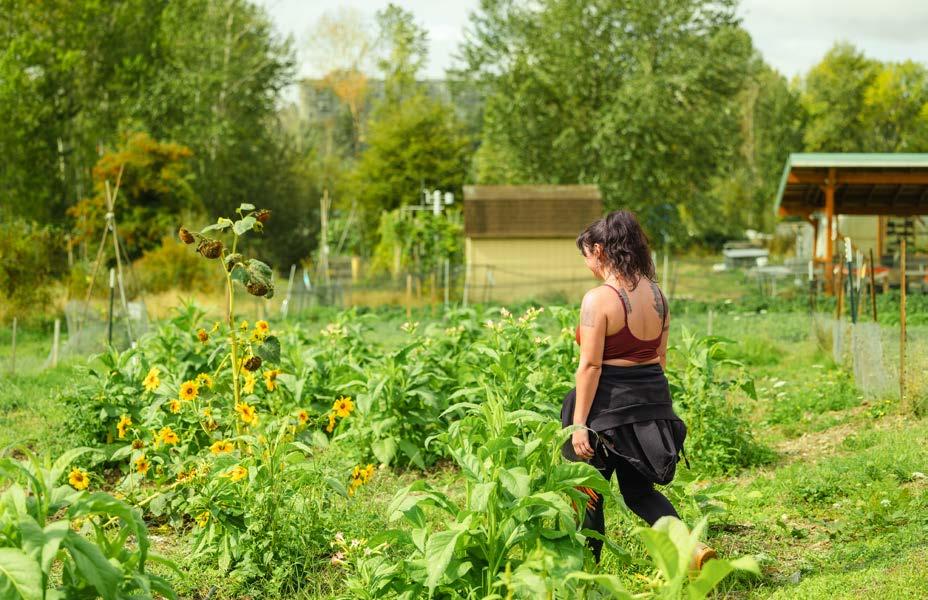

The garden’s mission resonates with student Sarah “Sarai” Mayer, who was born to a Washoe father and a Thai mother. She is the food-sovereignty liaison for the Native Garden, a role funded by UW Farm and – Intellectual House. “We’re living culture,” Mayer says. “We’re doing a continuance of the work that our ancestors have done. We’re supporting each other, connecting with our different cultures and trying to make a space for that on campus.” After she graduates, Mayer plans to pursue a degree in botanical scientific illustration.
As the liaison, Mayer says her most important jobs are showing how to work with the land using traditional teachings and introducing the idea of food sovereignty. Professor of American Indian Studies Charlotte Coté (Tseshaht/ Nuu-chah-nulth) describes Indigenous food sovereignty as “the right of peoples to eat healthy and culturally appropriate food and have that food harvested and processed through ecologically sound and sustainable methods.”
Coté is the co-founder and chair of

The Living Breath of Indigenous Foods Symposium, a campus event the Native Garden often supports by providing produce. “Gardening teaches students not just about growing vegetables but also how important they are to certain Indigenous communities that have a very strong agricultural base,” she says. “You’re creating spaces that bring students—especially Native students—together. Having these kinds of spaces exemplifies the spirit of coming together and being in community.”
The garden started as a single 30-by-70-inch plot. Now there are 56 mounds. “We’re all trying to work together to make sure we ensure access,” Mayer says, “so the Native Garden is useful for the people who need it.” Among other crops, corn, beans and squash are grown using the traditional Three Sisters method. The crops support each other when planted together: Corn offers stalks for beans to climb, beans provide nitrogen to keep the soil healthy and shade from the squash helps the soil retain moisture and prevents weeds.
The latest developments in the garden include a pond for the cultivation of aquatic crops such as wapato, an edible tuber that once grew in abundance in Washington and Oregon wetlands. Mayer has recently focused on growing medicinal crops, like ceremonial tobacco, and would love to oversee the development of a separate medicinal garden.
The Native Garden also has a new mentor in Polly Olsen (Yakama Nation), ’94, tribal liaison and director of diversity, equity, access, inclusion and decolonization at the Burke Museum. She will lead students and other groups in farming, gardening and traditional food stories.
“To see the students’ pride—I did it all for that,” Braine says. “All the arguments, all the fundraising, all the digging and pulling. It was just so worth it to see that. And then when somebody was hungry—to see them come in, grab something and leave without any judgment. That’s what it was all about.”
Each year, the Multicultural Alumni Partnership reaches out to historically underrepresented UW students with financial support. This year’s promising scholars want to address inequities in health, education and leadership.
Ernest Balezi moved from the Democratic Republic of Congo to the U.S. at age 11. “That’s when my passion for service sprouted as I began to notice the inequities that were prevalent in society and how they impacted many of the peers that I grew up with,” he says. Concluding that his peers lacked role models who could show the many possibilities available for them, he was inspired toward community leadership and hopes to find ways to support the people around him.
Alfredo Arreguin Scholarship
Elizabeth Lujano-Caballero, ’23, is completing her master’s degree in the teacher education program. As a first-generation, Spanish-speaking Latina, Lujano-Caballero found that her identity and experiences were not often reflected by her teachers. “I am passionate about being a trustworthy, empathetic educator for young students who may be experiencing the same underrepresentation as I did growing up,” she says.“This way they can think, ‘Sí, se puede.’”
Owen G. Lee Scholarship
Muhammad Rahman, ’23, who studied data science and bioinformatics as an undergraduate, is a first-year medical student at the UW School of Medicine. “My main interests are working and volunteering with organizations that uplift disadvantaged communities, particularly in health care,” he says. “I am also deeply passionate about the intersection between technology and medicine and its applications in clinical research.”
Dr. Lois Price Spratlen Scholarship
Victoria Torres, a first-generation college student, is working on a public health degree. “I had the privilege of being raised in a Mexican household where I was taught to work toward my biggest dreams,” she says. “During my time at UW, I hope to gain the knowledge to continue my path toward becoming a physician and continue to bring impactful change to my community.”
Kaliana Guerrero, ’23, is a public healthglobal health graduate with an anthropology background. Now pursuing a Master’s in Public Health, she is working to promote health literacy and preventive care. “I am passionate about supporting communities in feeling empowered within the health system through effective communication and an understanding of various cultures and environments,” she says.
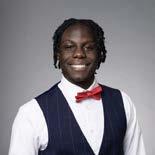


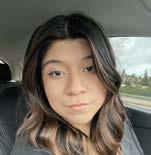
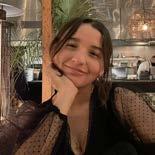

By Caitlin Klask
Asha Warsame, right, celebrates with her siblings Abdi Najim Aban, center, Ayan Warsame, far left, and their mother, Sadiyo Mohamed on the steps of Suzzallo Library.
learning Arabic, which brought her, as a high school freshman, to OneWorld Now!, a Seattle-based extracurricular program for high school juniors and seniors who want to learn a new language and travel abroad.
With help from Greg Wong, ’07, her supervisor at a youth tutoring program, she persuaded the OneWorld Now! coordinators to make an exception and accept a younger student. She ended up in Morocco studying Arabic. While in North Africa, she met a group of Fulbright students studying and conducting research. “And I’m like, ‘That’s what I want to do,’ ” she says. So she applied to the UW with dreams of becoming a scholar.
When she started at the University, Warsame found only six other Somali students in her class. She joined the Somali Student Association, an organization based out of the Kelly Ethnic Cultural Center and focused on spreading knowledge and understanding of Somali culture, mentoring students and increasing the enrollment of students of East African descent.
Asha Warsame was a child refugee who experienced war and famine before the age of 5.When she was in middle school, her family had settled in South Seattle, but she commuted across the city to Wallingford to attend Hamilton International Middle School because her mother had heard it was a good place for children trying to adapt to a new country, language and culture.
“When your family is not familiar to the area, [you are] trying to figure out how to navigate the spaces you’re in while lacking resources,” says Warsame, who is one of eight children in a single-parent family from Somalia. Her memories of middle school are foggy; while her classmates were learning new subjects, she and her family were adjusting to their new surroundings with few resources.
Today, Warsame—a first-generation college student who capped her UW bachelor’s and master’s degrees with a doctorate in education in June—hopes to develop more resources and representation for young people who might not see college as a possibility. As a scholar, she led the way for her younger siblings, Ayan Warsame, ’21, ’24, and Abdi Najim Aban, ’24. All three graduated on the same spring day—Ayan with a master’s in social work and Abdi, a computer science degree.
“The UW is a prestigious school, especially among the Somali community,” says Warsame, explaining what drew her and her sister and brother to their alma mater. “I figured out the process, and that made it seem like it’s possible” for her younger siblings.
Warsame’s decision to attend the UW stemmed from her participation in a set of challenging high school courses meant to prepare students for college and global engagement. She began
At first, Warsame struggled with her decision to go pre-med. “My GPA was suffering, and I was like, ‘Asha, this is not it,’ ” she says. Her mother was supportive. “She said, ‘You have to do what you’re interested in and what’s going to work best for you.’And I said, ‘Well, I’m interested in becoming a teacher.’ ”
Warsame finished her bachelor’s degree in 2012, took a job at Cultivate Learning, a UW research center focused on early childhood education, and applied to graduate school. She wasn’t accepted the first time. “There’s a reason why everything happens,” she says. “It puts perspective back into things. I was able to apply again the following year, and that’s when I got in.”
In graduate school, Warsame relished learning with and from people with similar lived experience. “When I was taking graduate non-matricular courses, it brought me into the space of learning about myself, my earlier experiences.” Some of her courses brought up memories from her childhood as she was learning English. The education system, she realized, lacked a cross-cultural approach. “I thought, ‘That’s why I struggled with this,’” she says.
‘When your family is not familiar to the area, [you are] trying to figure out how to navigate the spaces you’re in while lacking resources.’
—Asha Warsame
Wong, now Seattle’s deputy mayor, also recognizes this gap and is proud to play a role in bridging it. “In general, when we think about what helps make us as a society and a city thrive, it’s the ability to give young people who may have come from uncertainty some structure to support them, to help them visualize and achieve their goals,” he says. “The investment pays off in later years, as Asha found. These people become amazing contributors to our city in a way that is 100% worth the investment of our time.”
You might say that Wilson Reed’s journey to the UW started on a Mississippi school bus. It was the first of several buses that transported him from a difficult childhood in the South to a scholarly life in the West.
In “Junebug,” a fictionalized account of a boy growing up in the Deep South of the 1950s and ’60s, Reed, ’71, ’73, details a childhood touched by misfortune and grief, but rich with caring and encouraging family members. In telling this story, Reed wanted to both better understand what shaped him and offer some inspiration to others.
“Something was missing,” Reed says of his sense of self growing up. “I kept going back to Mississippi every chance I could get for years, and I needed to figure out a way to tell a slice of my story.” With the start of the COVID-19 pandemic, he had the opportunity to craft the book. It also helped him reconcile his feelings about growing up in the racial apartheid of Jim Crow, losing his mother at an early age and discovering his father had a second family.
Reed decided write the book for young readers who might find solace or encouragement in the tale. A large section takes place in Seattle with details about starting school at the University of Washington in the late 1960s. Reed weaves in precious descriptions of joining the Educational Opportunity Program and Junebug’s first day on campus with 200 other new students listening to the UW’s first Black administrator, Vice Presi-
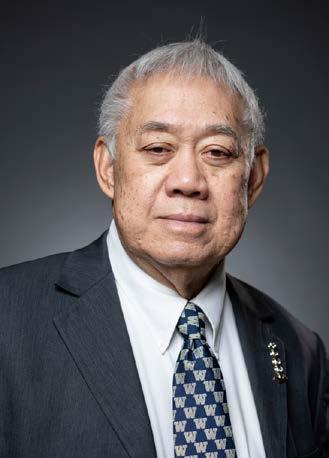
By Hannelore Sudermann
dent Samuel Kelly, offer words of promise and confidence.
People all around Junebug— characters based on real people—are invested in his success. “My counselor, Gertrude [Peoples], also explained how by accessing all the supports, I could crack the puzzle of university life,” Reed writes.
He also highlights campus stalwarts like Sam Kelly and Trevor Chandler, a political science professor who later became associate dean of graduate student services and minority education. In real life, these powerful men would always greet Reed with a hug. “I never had men in my life who were so kind,” he says. “They were like, ‘If you can get here from Mississippi, you can get through this program.’ ”
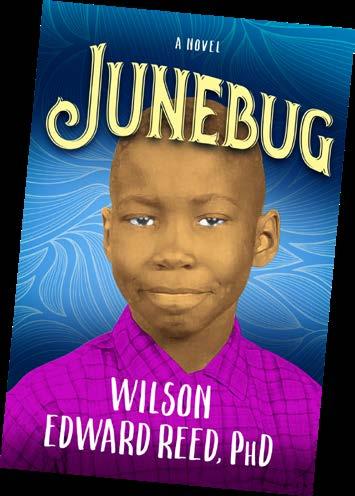
“Junebug” was released this summer by Morgan James Publishing.
While the book leaves Junebug in college, Reed’s own story continued with bachelor’s and master’s degrees in political science. A few years later at the University at Albany, he earned his master’s in criminal justice and finally capped his studies with a Ph.D. in political science from Northern Arizona University.
Over the years, Reed has taught at the UW, Seattle University and other schools in addition to working in public service. Today he lives near Las Vegas, Nevada.
Francisco “Frank” Irigon, ’76, ’79, started at the UW as a student in the Educational Opportunity Program. He was serving in the ROTC and at the same time taking part in anti-war demonstrations. Called to civic engagement and social justice activism, Irigon found his way to the Asian Student Coalition and became the first Filipino American on the ASUW Board of Control. There he helped direct funding so that students of color had equitable resources for their programs.
He also focused his energies off campus, leading protests in 1972 against the Kingdome
development that would adversely impact the Chinatown-International District.And he cocreated a pan-Asian community newspaper, Asian Family Affair.
After college, Irigon co-founded and served as executive director for the International District Community Health Center. More recently, he served on boards that included the Puget Sound Advocates for Retirement Action, Asian and Pacific Islander Americans for Civic Engagement, Friends of the EOP, the Multicultural Alumni Partnership and the UW Alumni Association Board of Trustees. Irigon died Sept. 12 at age 77.
INthis complex and vibrant world, the Universityof Washington can boast a remarkable group of alumni who embody the spirit of innovation and social good. From championing human rights to leading businesses and protecting human health, 20 alums who appeared in the pages of Viewpoint over the last two decades are presented here. We met them as students, as aspiring professionals and as community leaders in-the-making. Now, as this publication reaches a new landmark,we dig back into their stories and celebrate them for using their talents and experiences to create change across the globe and here at home.

A “wandering do-gooder,” Yaw Anokwa, ’07, ’12, wanted to work on solving meaningful problems. After completing his master’s in computer science and volunteering for six months in Rwanda, he returned to the UW for his doctoral degree in computer science and embarked on launching ODK (originally Open Data
Kit), an open-source software designed to help social-impact organizations collect data offline in low-resource settings. Today: Anokwa, and his business partner, Hélène Martin, ’08, lead ODK in its mission to help researchers, field teams and other professionals collect the data they need to power decision-making in public health, global development, crisis response and more. The platform is now used in 190 countries by more than two million people. ODK’s impact on public health is particularly notable: The World Health Organization has used the software to help immunize hundreds of millions of children and cites ODK as a key technology that helped eradicate wild polio from Africa.
2. Kyle Rapiñan, ’12, credited Seattle Education Access with helping them navigate the administrative challenges of applying to UW as a formerly homeless high school senior. While a UW student,
By Shin Yu Pai
Rapiñan helped establish the youthled arts venue Queer Youth Space on Capitol Hill and was closely involved with the Q Center on campus.
Today: Rapiñan, who studied law at Northeastern University, works as an assistant attorney general for the New York State Attorney General's civil rights bureau. They focus on LGBTQ+ rights, disability rights and housing justice work. Before that, Rapiñan was at the NYC Commission on Human Rights working on discrimination-related cases and ran their own law practice, helping adults and minors change their names and update their various identification documents. They were also the director of survival and self-determination at the Sylvia Rivera Law Project, working alongside low-income transgender and gender non-conforming people of color for gender self-determination and liberation.
3.
One of the “40 to Watch” emerging leaders profiled in the spring, 2009 issue of Viewpoint, Lael Echo-Hawk, ’99, ’03, stood out for her work as in-house counsel for the Tulalip Tribes and for her leadership on the Washington Bar Association Committee for Diversity. She moved to Washington, D.C., in 2010 to take a position as legislative director for the Native American Contractors Association and then as counselor to the chairwoman of the National Indian Gaming Commission. She served as past president of both the National Native American Bar Association and the Northwest Indian Bar Association.
Today: Based in Washington, D.C., Echo-Hawk returned to private practice

in 2018 and leads the tribal advocacy group MThirtySix, Inc., where she advises tribes from Alaska to Massachusetts. “As a young person watching my grandma Katie John’s legal fight to fish at the village site where she was born, I knew that the law was a place that needed more Native voices,” she says. “I’m blessed to be trusted by my clients to advocate on their behalf and in that role, I can help bring very practical and real change to my community.”
4.
A first-generation college student, Dorender Gray, ’14, ’22, said the support she received as a Husky Promise student and from the UW’s Instructional Center was critical in her success. She graduated with a major in neurobiology and a minor in global health. She took three gap years to work on the development of malaria vaccines at the Center for Infectious Disease Research while working part time as a medical scribe. During that time, she applied and was accepted to the UW School of Medicine. Today: Gray is now a resident physician in the UW OB/GYN Residency Program. She chose her specialty after seeing the profound impact she could have on her community. “There is a significant shortage of Black OB/GYN physicians, leaving many Black and un-
derserved patients without providers they can identify with,” Gray says. “My OB/GYN rotation was the only one where I felt heartbroken when the day came to an end. I wanted to rewind the clock and spend more time engaging with patients and experiencing the breadth of care OB/GYNs provide.” Gray manages her patients’ pregnancies, addresses their health concerns and performs surgeries that offer definitive treatment for conditions they have struggled with for years. “It’s especially rewarding when my Black patients light up upon seeing me, often because they’ve never had a Black OB/GYN before. The instant connection and the words of affirmation they offer is energizing and encourages me to keep pushing forward. I absolutely love my job!”
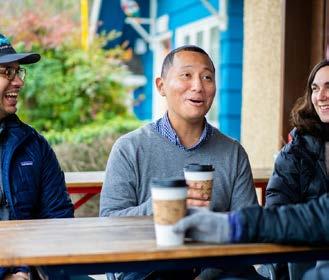
When Abel Pacheco Jr.,’12, moved from Southern California to attend graduate school in public affairs, he packed his car and kissed his parents goodbye, promising them that he would make them proud. At the UW, Pacheco found mentors who helped him to navigate his career while being a part of the Graduate Opportunities and Minority Achievement Program community. His GO-MAP cohort supported him through graduate school, which shaped how he approaches his work with organizations. Today: While working in the Office of Minority Affairs & Diversity, Pacheco was appointed to fill a vacant position as the District 4 representative on the Seattle City Council in 2019. There he served as chair of the land use committee and vice-
chair of the Transportation & Sustainability Committee. He later became the director of government & community relations for the central corridor at Sound Transit. In June 2023, he joined the Washington State Army National Guard to serve part time as an intelligence analyst. Pacheco’s dad was killed in a car accident earlier this year. “The UW helped me honor my promise to my parents, and it’s an experience that I am grateful for,” he says. “The UW helped me give him such a happy and proud heart.”

As an undergraduate, Angela King, ’94, went after every internship and became a dedicated member of the Associated Student Journalists of Color while also tutoring high school students through the Central Area Youth Association. Between going to classes and raising her young son, King spent her remaining time in the editing booths at the Communications Building. She received a number of academic awards, but she says her most cherished achievement was the FEOP/ OMA&D President’s Achievement Award, which is given to one of the top-performing students in the Educational Opportunity Program. Today: King worked as a writer, reporter and anchor for KING-5 and FOX 13 Seattle. She was a member of the team that launched the now defunct Northwest Cable News Network until 2017. “I was there when we switched the lights on, and I was the last one to turn them off,” King says. She left TV news to pursue a dream of producing docu-
mentaries. One project took her to Moldova. Upon her return, the news industry beckoned her back to the anchor desk. “A former news director called to say KUOW 94.9 FM was looking for a new morning show host. I thought, ‘Why not? It can’t hurt to apply,’ ” she says. “I was totally shocked, though, when KUOW offered me the job.” King became the local host of NPR’s “Morning Edition” in 2018. The Emmy Award-winning journalist is now celebrating 30 years in the news business. She has also hosted the UW Commencement Ceremony’s pre-show (The Purple Carpet) for the past three years and is a regular at OMA&D’s Celebration. “It’s so amazing to come home on so many levels, and still be active with the University that set me on my professional path,” she says.
7.
Arely Morales, ’17, dazzled museumgoers at the Henry Art Gallery with her MFA thesis show, which featured large-scale portraits of immigrant workers from Mexico and Central America. She graduated with honors from the School of Art + Art History + Design, with the additional distinction of the department’s de Cillia Graduating With Excellence Award.
Today: After graduation, Morales found a teaching position at Stephen F. Austin State University in Nacogdoches, Texas. She also
received a 2019 Elizabeth Greenshields Foundation Grant for her artwork. She has been featured in numerous group and solo exhibitions at institutions including the Art League Houston, the Masur Museum of Art, the National Museum of Mexican Art in Chicago and the U.S. Embassy in Mexico City. Her work is held in public collections, including the Dallas Museum of Art. In April 2024, Morales’ work was selected for the exhibit “New Worlds: Women to Watch” at the National Museum of Women in the Arts in Washington, D.C.
8. In fall 2020, Navon Morgan, ’23, brought a student’s perspective to a special issue of Viewpoint highlighting the voices of Black people from the UW community in the wake of George Floyd’s murder and in the midst of the Black Lives Matter movement. As a student and director of the ASUW’s Black Student Commission, Morgan underscored experiences many Black students face, like not feeling safe on campus, and saw ways the University could better meet the needs of Black and Indigenous students. He also urged the UW community to renounce white supremacy and do better with efforts like removing harmful symbols, increasing the number of Black faculty and staff, and supporting students in their efforts to effect change.

“Though we recognize our first job is to be students, choosing between classwork and fighting for those we care about is neither an easy nor a fair choice,” he wrote.
Today: As a UW student, Morgan continued as a leader and ad -
vocate while supporting the work of the Disability Resources Center.

“I was able to broaden my lens on the issues impacting people living with disabilities and work to attain an education at UW,” he writes. “These opportunities showed me that the gaps in access and resources were more vast and structural than I’d imagined when I was a sophomore writing for Viewpoint.” He was one of the Husky 100 (recognized for making the most of his time at the UW), served on the provost’s advisory board and chaired the group that planned the Black Graduation ceremony in 2023. After graduating with honors in political science, Morgan helped pilot an after-school youth leadership program at his alma mater, Fort Vancouver High School. This fall, he started work on his master’s in public affairs at Cornell University on a full-tuition scholarship.
9.
As a student, Paulette
Jor dan , ’03 , worked with University administrators and the Office of Minority Affairs & Diversity to bring the Spring Powwow back to the UW. She was one of the emerging leaders featured in the spring 2009 Viewpoint story, “40 to Watch,” and was highlighted for her work with Idaho Young Democrats and the National Young Democrats convention.
Today : After graduation, Jordan moved home to Idaho and became the youngest person elected to the Coeur D’Alene Tribal Council. She served as a state representative for Idaho from 2014 to 2018. She is a recipient of the National Center for

American Indian Enterprise Development Business Leadership Award as one of the “Top 40 under 40” and speaks nationally on economic and community leadership. She ran for governor in Idaho—a state that has never elected a woman governor—in 2018 and for the U.S. Senate in 2020. She is also the subject of “Paulette,” a short documentary about her historic run as the first Native American to win Idaho’s primary for governor.
James Sun, ’99, started his technology investment company with $5,000 at age 18. By the time he graduated cum laude from the UW’s Foster School of Business, he had more than $2 million in the bank. In 2008, when he was featured in Viewpoint, he had founded the networking site Zoodango.com and had competed in season six of “The Apprentice.”
Today: Sun is the founder and owner of several successful ventures including Beautytap.com , Growthcare.io, Devblock.net and Dramabeans.com, the largest English-language online fan community for Korean dramas. His media presence includes hosting the TV series “Sun Tzu: War on Business,” which first aired in 2010 on BBC Worldwide and later in the U.S. on the National Geographic Channel. A sought-after speaker, he advises companies on topics including consumer segmentation, globalization and generational differences.
11. Bobby Ann Chien, ’09, volunteered with the Pipeline Project’s Alternative Spring Break program throughout her undergraduate years at UW. The program, now known as Riverways Education Partnerships, brings UW students into rural and tribal K-12 schools around Washington to expand awareness of what the young people might do after high school. In her freshman year, Chien and her Pipeline classmates visited elementary school students in Tonasket to offer literacy and arts programming. They wrote, illustrated and bound a book during their week together. Today: Chien received her law degree from Seattle University. After becoming a licensed attorney, she eventually pivoted away from a full-

time legal practice and toward the corporate sector, where she could leverage her law degree. Currently with Microsoft, she has worked with Expedia, T-Mobile and Nordstrom, where she negotiated highlevel agreements with suppliers and supported diversity and inclusion, human rights and environmental initiatives focused on ethical supply chains. She still volunteers for environmental and legal causes as time permits between her children and her freelance art practice.
12.
Osman Salahuddin, ’18, completed his degree in neurobiology while serving as student body president and having a research role at the UW Medical Center Emergency Department. “As I was studying toward a future in the health care field, I was called to service through my community. ... I wanted to be a leader who stepped up to advocate for those whose voices were not often heard,” he said. As ASUW president, Salahuddin focused on mental health resources for students, lobbied for full funding for the State Need Grant and spoke to leaders in Olympia to help undocumented students gain eligibility to the College Bound Scholarship (HB1488).
Today: After graduating, Salahuddin worked in the private sector for a few years as a medical device consultant. He brought his health care background into his work by helping found the BIPOC Health Ca-
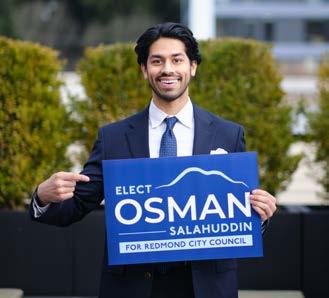
reers Ecosystem, a nonprofit helping underrepresented students find pathways in the health care field. More recently, Osman decided to run for city council in his hometown. “I have been fortunate to call Redmond home for nearly all my life,” he says. “I’ve gone to school in the city, gotten involved with local nonprofits and navigated the growth that the city has undergone in almost three decades. I ran for office to give back to the community that has shaped me while bringing new leadership and fresh ideas to the growing city.”
She is CEO of Wella Company, a global beauty leader that operates in over 100 countries. She remains committed to UW, having served many years on the Foster School advisory board and as chair in 2018. She also attends UW events including alumni gatherings overseas. In 2017, she was the guest of honor for the China Huskies in Shanghai.
14.
Kriss Turner Towner, ’84, moved to Los Angeles after graduating from UW and waitressed before getting into show business as a writer for TV shows including “The Gregory Hines Show,” “Living Single” and “Sister, Sister.” She worked for several years on “The Bernie Mac Show” and sold a movie script titled “42.4 Percent,” a romantic comedy, to Focus Features.
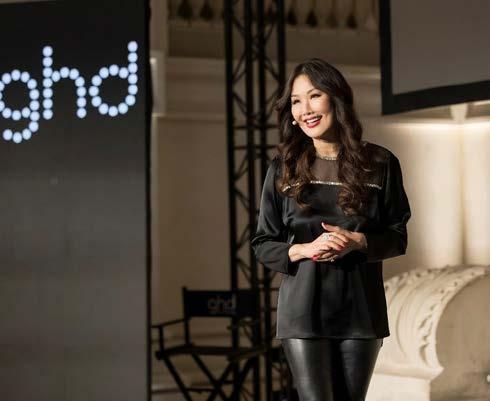
In the spring 2009 Viewpoint, Annie Young-Scrivner, ’91, described as “one of the highest-ranking women in all of PepsiCo,” had been promoted to a leadership role with Quaker Foods & Snacks. As an undergraduate, Young-Scrivner had been encouraged by Professor Judith Edwards to apply for an internship program at a Fortune 50 company. That experience led to a global career in major consumer brand companies. Her jobs have included leading marketing and sales at Quaker, global chief marketing officer and president of Tazo Tea and president of Starbucks Canada. Today: After serving as CEO of Godiva Chocolatier from 2017 to 2020, she shifted from food and beverage to the beauty industry.
Toda y : Turner Towner’s writing and producing credits have grown to include TV shows “Home Economics,” “Greenleaf,” “Everybody Hates Chris” and “Whoopi.” She has been honored for her writing with Peabody, Humanitas and NAACP awards. Her first feature film, the romantic comedy “Something New,” won a Black Filmmakers Award for best screenplay. She lives in Hollywood with her husband, daughter and three dogs.
15.
In the fall of 2011, Lei Ann Shiramizu, ’82, a small business owner, shared some of her story with Viewpoint. The communications major had opened a retail shop, Momo (“peach” in Japanese), which quickly became an iconic clothing boutique in Seattle’s Chinatown-International District. She
was also an advocate for preserving local history and culture and an ambassador for the historic neighborhood “People often come to the ID seeking cheap good food, but once here, I help them discover the areas other offerings,” she told us then.
Today: In 2020, after 13 years in business, Shiramizu closed Momo, ready for new endeavors. Today she taps into her business expertise and communications acumen by helping other small-business owners and managers while following her passions and spreading joy as an advocate and activist. “My recent new-found freedom allows me room for bigger travel adventures— I just returned from nearly a month exploring Spain—and smaller trips for both fun and family commitments. ... I also have more time to line dance, do yoga and spend time with good friends, some of whom I met in my dorm days at the UW!”
16.
Viewpoint celebrated with Tiffany Dufu, ’96, ’99, when she came through Seattle in 2017 to promote her book, “Drop the Ball: Achieving More by Doing Less,” a memoir loaded with advice for women on how to navigate professional expectations, family demands and pressure toward success. The book was filled with “actionable wisdom,” according to Gloria Steinem, who wrote the forward.

In February, Dufu became president of the Tory Burch Foundation, a nonprofit designed to empower women entrepreneur s. She also founded The Cru, a networking platform that connects women for mentoring, coaching and
goal setting. All her efforts are toward advancing women and girls, she said recently in a Women’s Wear Daily interview.
Benjamin Vazquez, ’02, ’07, was featured in 2005 for choosing to follow up his undergraduate studies in anthropology with medical school at the UW. “I stayed at the UW because there is a better commitment to primary care and community-based medicine, particularly in underserved communities,” he said. He also received a scholarship from the Multicultural Alumni Partnership.
Today: Completing his UW medical degree in 2007, he went on to intern at Virginia Mason and then do a residency at the Mayo Clinic, where he was honored with the Mayo Clinic Fellows’ Association Humanitarian Award for his outreach and volunteer work. He has served on the board for the HIV Alliance and is the past president of Lane County Medical Society (2023). As an assistant professor at Oregon Health & Science University, Vazquez teaches medical students and dermatology trainees.
18.
Phyllis Fletcher, ’11, a communication alumna, had a brief callout in Viewpoint back 2014 when she became managing editor of the Northwest News Network, a regional collaboration of public radio organizations.
Today: Fletcher has built a vibrant career around telling great stories. First a reporter, then editor and sometimes bureau chief, she has a resume that includes National Public Radio, KUOW and American Public Media Group. Recently, she served as a senior editor with The New York Times, where she developed staff and helped set editorial standards for cultural programming production. Today she’s a senior story editor for

Wondery, a major podcast network and publisher. Her latest projects include “Empire City: The Untold Origin Story of the NYPD” and “Black History, for Real,” a podcast that offers an “unwhitewashed” account of overlooked history. Fletcher is also a board member for the public radio show “Live Wire,” the audio documentary organization Third Coast and is a past president of the Seattle Association of Black Journalists.
19.
Roy Diaz, ’94, ’96, ’02, ’02, was featured in Viewpoint’s premier issue, fall of 2004. He was highlighted as an Educational Opportunity Program alumnus and recognized for his long engagement with the UW—going from a bachelor’s degree in chemical engineering to a master’s in physical chemistry to simultaneously pursuing a law degree and a Ph.D. in biophysics.
Today: Diaz has found his niche as an intellectual property attorney and adviser. His volunteer work includes serving as trustee and past president of the UW Alumni Association, past president and board member of the UW School of Law Alumni Association and trustee for Seattle Children’s. In June, he joined the UW's Presidential Search Advisory Committee to help the University find its next leader.
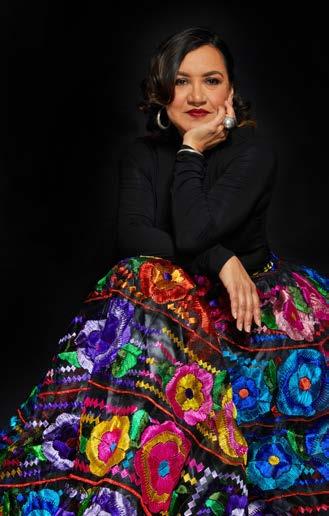
Martha Gonzalez, ’13, considers herself a Chicana artivista. She first appeared on the pages of Viewpoint in 2013, having just won a Grammy with her rock band Quetzal for their album “Imaginaries.” She had done this while working on her Ph.D. in the UW Department of Gender, Women and Sexuality Studies. Her dissertation explored community building among Chicana artists and activists using musical tools and social techniques and how the artist-activists imagined and re-created elements in their communities like food sovereignty, artistic networks and knowledge production. “I received the best mentorship at the UW that a student can ask for,” she said. “All of the pro-
fessors are prolific, and my adviser, Michelle Habell-Pallán, continues to be a godsend in my life.”
Today: Gonzalez continues to innovate and explore. In 2020, she published “Chican@ Artivistas: Music, Community, and Transborder Tactics in East Los Angeles,” a book blending her own story with history and social commentary. Joining the faculty of Scripps College in 2013, she is now an associate professor in the Depart ment of Chicana/o Latina/o Studies. She continues to make music with Quetzal. Their recordings include “Puentes Sonoros” (2021) and “The Eternal Getdown” (2017).
This winter, Gonzalez returns to Seattle for the UW Public Lecture series. “An Evening with Martha Gonzalez” will be held at Town Hall on January 22. Registration opens December 12. For more information, visit washington.edu/lectures/events.
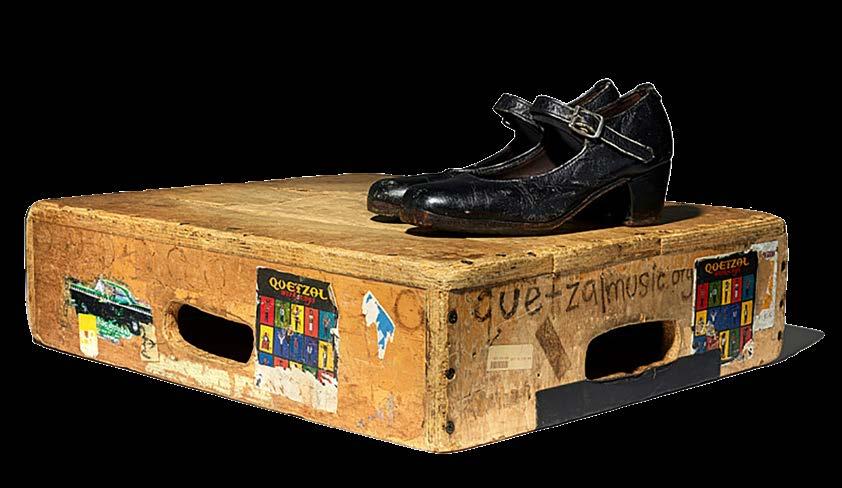
Gonzalez was named a MacArthur Fellow for her work strengthening cross-border ties and developing collaborative methods of artistic expression to advance social justice and community building. Also, a pair of her dancing shoes, known as zapateados, are in the collection of the National Museum of American History as part of the “One Nation, Many Voices” exhibit.